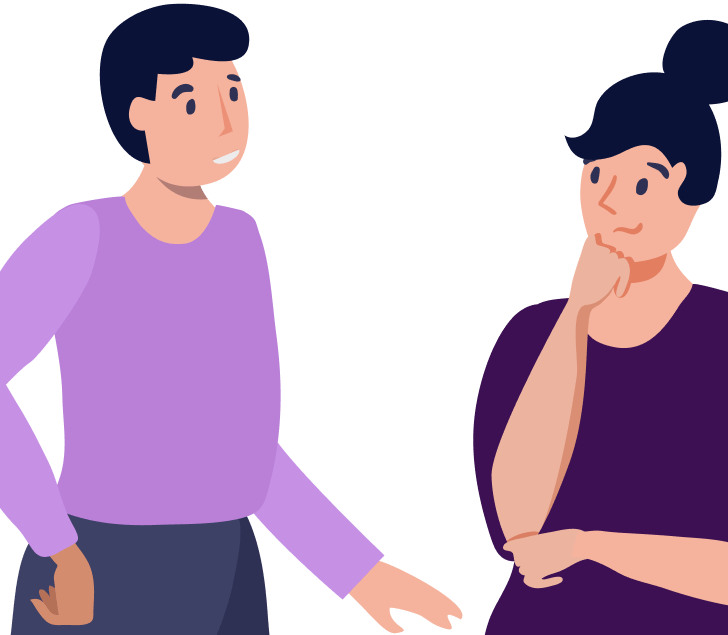Why is communication so important?
Communication
Communication is an important part of any relationship. But when you are providing support for someone experiencing mental health concerns or suicidal distress, your relationship can become more complex, making communication between you and the person you support a little tricky sometimes. Improving your communication skills can reduce your level of frustration and stress.
If you are supporting someone who has attempted suicide, or supporting a paramedic experiencing mental health concerns or suicidal distress, learn some tips and strategies to improve your communication and relationships by accessing our free programs.
Let’s look at one communication strategy that can help alleviate some common stress points. Do you sometimes find that conversations lead to an argument or end with one or both of you frustrated and angry with each other? Try this communication strategy to clearly state your needs without laying blame.

Using "I" statements
Imagine a scenario where you are exhausted at the end of the day. On top of everything you are dealing with, you’re not getting much help around the house. What is the best way to bring this up with the person you live with?
Begin what you say with “I” (instead of “You”). By doing this, you take responsibility for your own wants, thoughts and feelings rather than putting the responsibility or blame on the other person.
For example, the following way of communicating your needs may not be effective.
“You never do the washing up. It’s always a mess and I’m left to clean it up while you sit there on your phone. You are so lazy and self-entitled.”
Instead, you could try –
“I feel frustrated when I am left to clean up the dishes, because I often don’t have time to do everything myself. I would like your help with the washing up and then we could sit and relax together.”
Now try re-wording the following sentence yourself.
“You never tell me how you’re feeling, I’m not a mind reader.”
Quotes from family and friends
You are not alone if you struggle to communicate with the person you support.
“(I don’t know) what to say at times.
He doesn’t always want to talk about it with me.” – Partner.“John not communicating what he needs…I find it overwhelming.
I don’t really understand what he is going through.” – Partner.

Family and friends have told us that it’s not always easy for people to talk about their mental health and wellbeing. You might be put off talking to your loved one about their mental health or suicidal thoughts for fear of saying the wrong thing and ‘making it worse’. You may not be familiar or comfortable with these discussions, but they are important.
Join one of our free Minds Together programs to help you develop communication skills to support you.
Join now